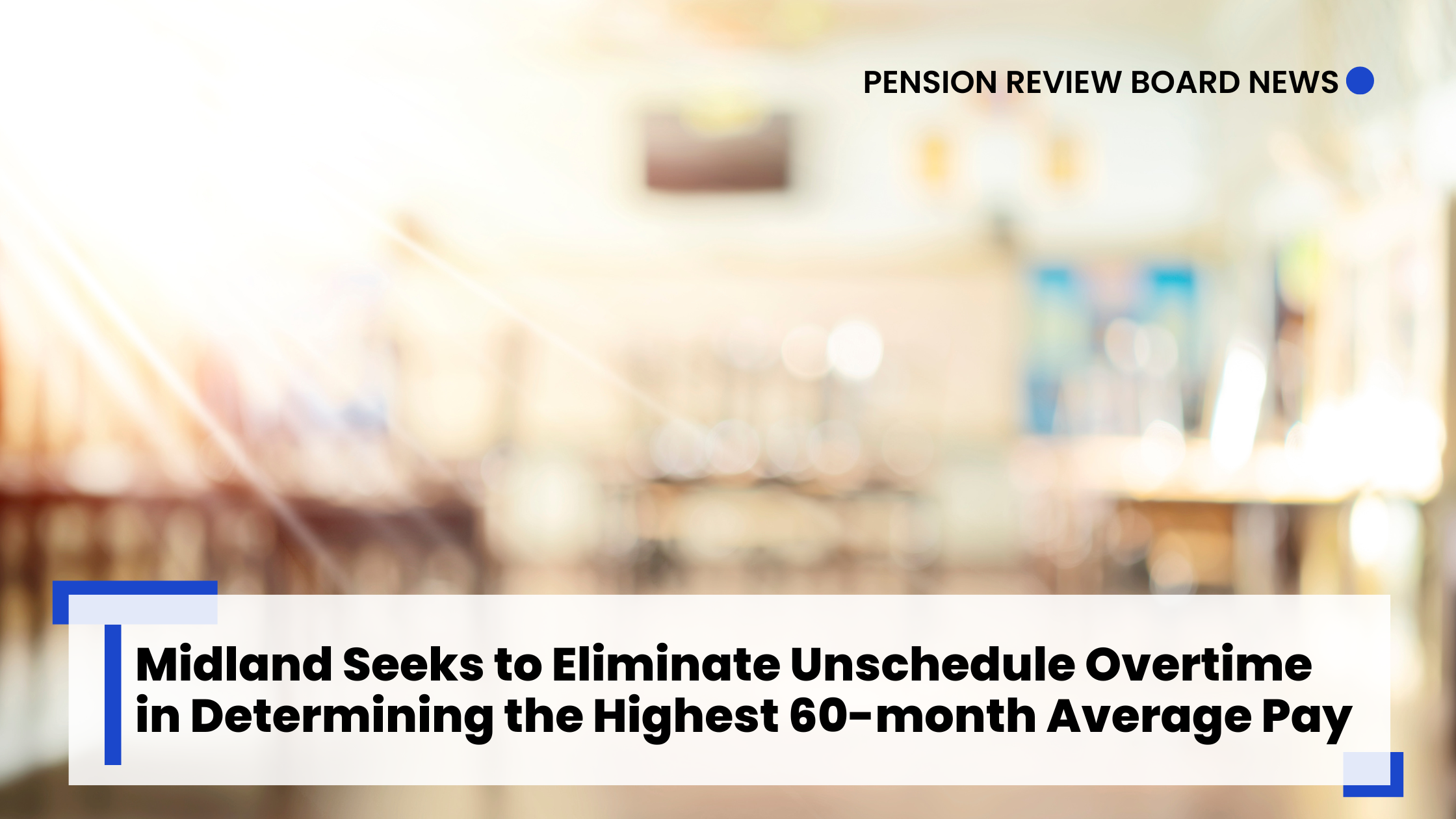On June 29, the Texas Pension Board received updates on the recent progress and changes pension funds have made. The City of Midland and pension officials presented their case at the beginning of the meeting, and PRB staff actuary David Fee followed on with additional reports:
- Midland City officials said a firefighter vote will be held in July to adjust plan calculations. They seek to eliminate unscheduled overtime in determining the highest 60-month average pay. They also want to change the highest 60-month average pay to the sum of pay in the 60 consecutive calendar months with the highest payout of the last 72 months divided by 60. The City officials confirmed that a forensic audit found no wrongdoing at the pension fund for the five years prior. But, they said, policies and procedures would be improved going forward. The latest actuarial valuation report found that the pension fund is $109 million underfunded, but the firefighter vote could reduce the underfunding by $9 million. City contributions and other adjustments are being determined for the remainder.
- The Galveston Employees Retirement Plan increased their benefit multiplier “in a very responsible manner” with city contribution increases.
- The Galveston Firefighters Pension Fund was the first system to complete its Funding Soundness Restoration Plan under new rules using its 2021 valuation report. By including a 3.2 percent increase in city contributions, the fund moved under 30 years. Still, a 2022 actuarial valuation report increased its amortization period by over 30 years due to rough market conditions that year. The fund has been noted as an at-risk system for a revised FSRP but was removed as a system immediately subject to a 30-year FSRP formulation.
- The Northeast Medical Center offered employees a lump sum option and is planning on terminating its plan in June 2023 by purchasing annuities.
- The City of Odessa increased its contributions to the Odessa Firemen’s Relief and Retirement Fund by 2 percent, from 26 percent of pensionable payroll to 28 percent. The contribution helped bring the amortization period down to 29 years in its January 2023 valuation report and removed the fund from that at-risk systems list.
- The Waxahachie Firemen’s Relief and Retirement Fund has been increasing benefits in a “responsible way.” They raised their benefit multiplier in October 2021, just before the market downturn. Their funding period increased from 17.5 years in 2020 to 27.2 years in 2022, but they’ve been able to increase benefits, absorb market losses and stay below the 30-year trigger thresholds for FSRPs.
- Brownwood Firemen’s Relief and Retirement Fund and Dallas Police and Fire Pension Fund have triggered PRB standards for 30-year FSRP formulations.
- Fee also identified six pension funds whose amortization periods are 30-40 years. While not yet at risk of triggering FSRP requirements, subsequent actuarial valuation reports may put them at risk. They were the Big Spring Firemen’s Relief and Retirement Fund, Cleburne Firemen’s Relief and Retirement Fund, Greenville Firemen’s Relief and Retirement Fund, Lubbock Fire Pension Fund, Lufkin Firemen’s Relief and Retirement Fund, and the Paris Firefighters’ Relief and Retirement Fund.
Fee also introduced a chart demonstrating how 13 pension funds have funded ratios below 50 percent. The chart drew questions from the PRB Actuary Marcia Dush, who noted how some plans, like Odessa Fire, were below 30-year amortization and the 50 percent funded ratio. She asked for more analysis in the future.
The staff will conduct an intensive actuarial review of the Abilene Firemen’s Relief and Retirement Fund in response to an official request from Texas Representative Stan Lambert. It was the first time a legislator had asked for a review, according to PRB staff member Bryan Burnham. The staff will present the review at the Sept. 21 PRB meeting, and Burnham hopes to provide the review in early September for plan review and comment.
About the Author: Joe Gimenez is a pension fund communications professional contracted with TEXPERS.

